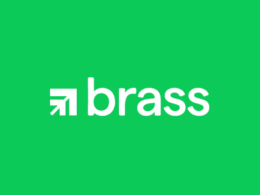Since its launch in 2018, OPay has emerged as one of the leading mobile money services in Nigeria, employing an extensive marketing campaign to attract new customers, particularly those who are unbanked and do not possess traditional bank accounts.
In its efforts to appeal to the unbanked population, the company, along with other fintech firms and commercial banks, streamlined the registration process for new users. This included relaxing identity verification requirements for the most basic bank account type, albeit with limited features.
However, recent developments suggest that OPay may be expanding its customer base at the expense of adhering to proper Know Your Customer (KYC) protocols. Ongoing controversies surrounding its account opening process indicate that the fintech may need to revamp its entire onboarding procedure.
OPay Digital Services Limited, a company established by Opera Norway AS Group, operates in emerging markets across Asia, Africa, and Latin America, with a presence in countries such as Mexico, Nigeria, Egypt, and Pakistan.
OPay claims to have over 35 million registered app users and 500,000 agents in Nigeria, relying on its services for various transactions, including money transfers, bill payments, and more.
Concerns have been raised about the ease with which individuals can impersonate others during the onboarding process for tier 1 OPay accounts. This observation comes as a follow-up to a controversy that arose just two months ago when individuals discovered unauthorized OPay accounts opened in their names.
In response to the recent issue, OPay explained that it had initially introduced a bank account verification feature in its onboarding process to facilitate users in authenticating their Bank Verification Numbers (BVN) more conveniently. This was particularly aimed at assisting users who may have forgotten their BVN. However, the fintech has since removed this feature from its onboarding process after identifying the potential loophole.
We implemented bank account verification to offer users a more convenient means of authenticating their Bank Verification Numbers (BVN), particularly in cases where users may have forgotten their BVN. Our system incorporates biometric validation by verifying the user’s face against the BVN database or cross-referencing it with the user’s real name. This process is reinforced by an OTP (One-Time Password) verification step to ensure the user’s authenticity. This approach aligns with the Central Bank of Nigeria’s recent guidelines mandating BVN/NIN verification for Tier 1 users,” stated OPay in a response.
The company acknowledged that the concerns raised in a viral video about it’s KYC compromise were a result of an exploited technical glitch, which has since been rectified.












